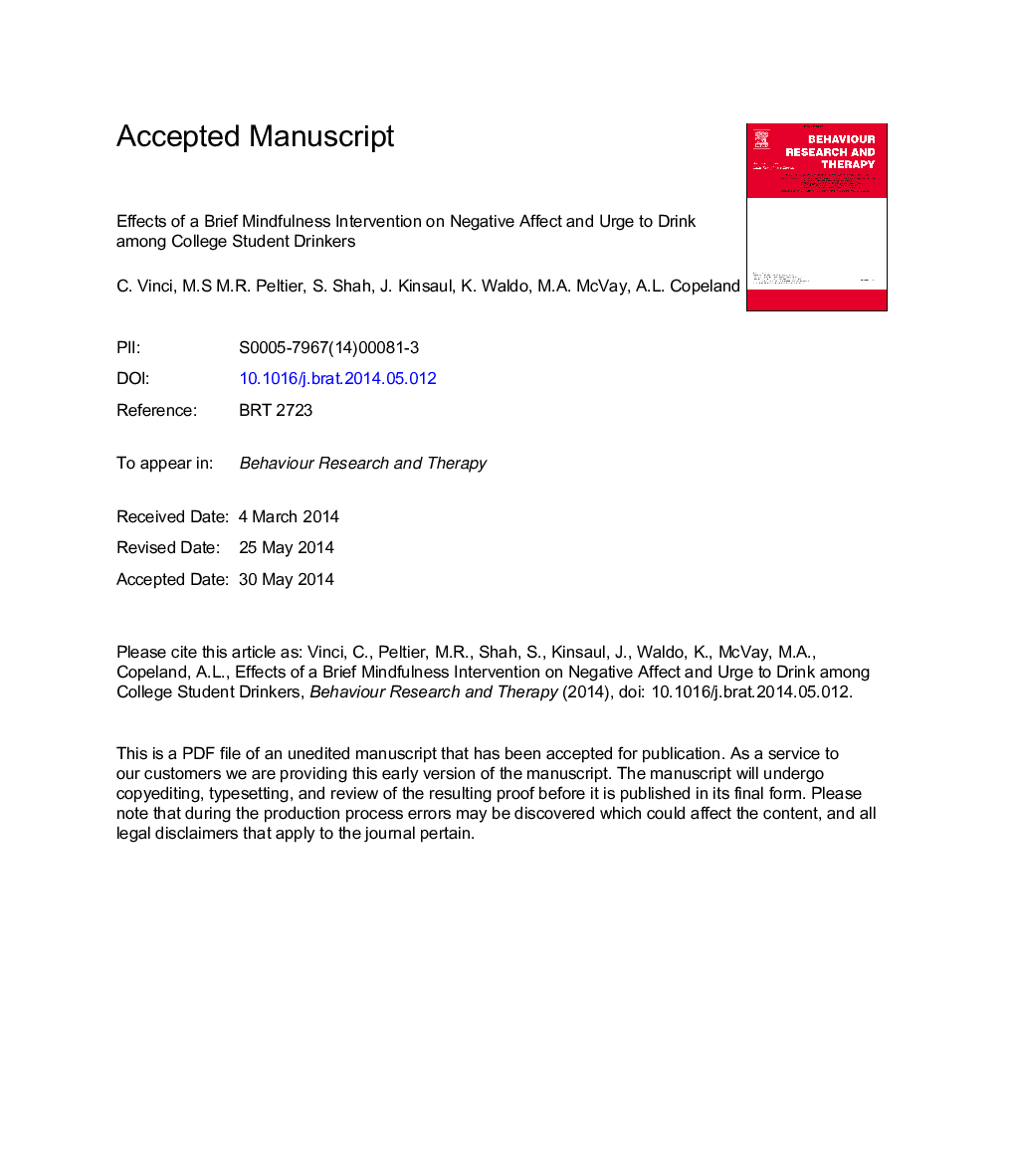| Article ID | Journal | Published Year | Pages | File Type |
|---|---|---|---|---|
| 7262668 | Behaviour Research and Therapy | 2014 | 52 Pages |
Abstract
Several theories have proposed that negative affect (NA) plays a large role in the maintenance of substance use behaviors - a phenomenon supported in laboratory-based and clinical studies. It has been demonstrated that mindfulness meditation can improve the regulation of NA, suggesting that mindfulness may be very beneficial in treating problematic substance use behavior. The current study tested whether a brief mindfulness meditation would lower levels of NA, increase willingness to experience NA, lower urges to drink, and increase time to next alcoholic drink in a sample of at-risk college student drinkers (NÂ =Â 207). Participants were randomized to one of three brief interventions (mindfulness, relaxation, or control) followed by an affect manipulation (negative or neutral stimuli). Affect and urge were measured prior to intervention (Time 1 [T1]), after intervention but prior to affect manipulation (Time 2 [T2]), and immediately after the affect manipulation (Time 3 [T3]). Levels of mindfulness and relaxation were assessed from T1-T3. The additional measures of willingness to continue watching NA images and time to next alcoholic drink were examined at T3. Results indicated that the mindfulness intervention increased state mindfulness and relaxation, and decreased NA immediately following the mindfulness intervention. However, the mindfulness intervention did not influence responses to NA induction on any of the outcome variables at T3. One potential explanation is that the mindfulness intervention was not robust enough to maintain the initial gains made immediately following the intervention.
Keywords
Related Topics
Health Sciences
Medicine and Dentistry
Psychiatry and Mental Health
Authors
C. Vinci, M.R. Peltier, S. Shah, J. Kinsaul, K. Waldo, M.A. McVay, A.L. Copeland,
